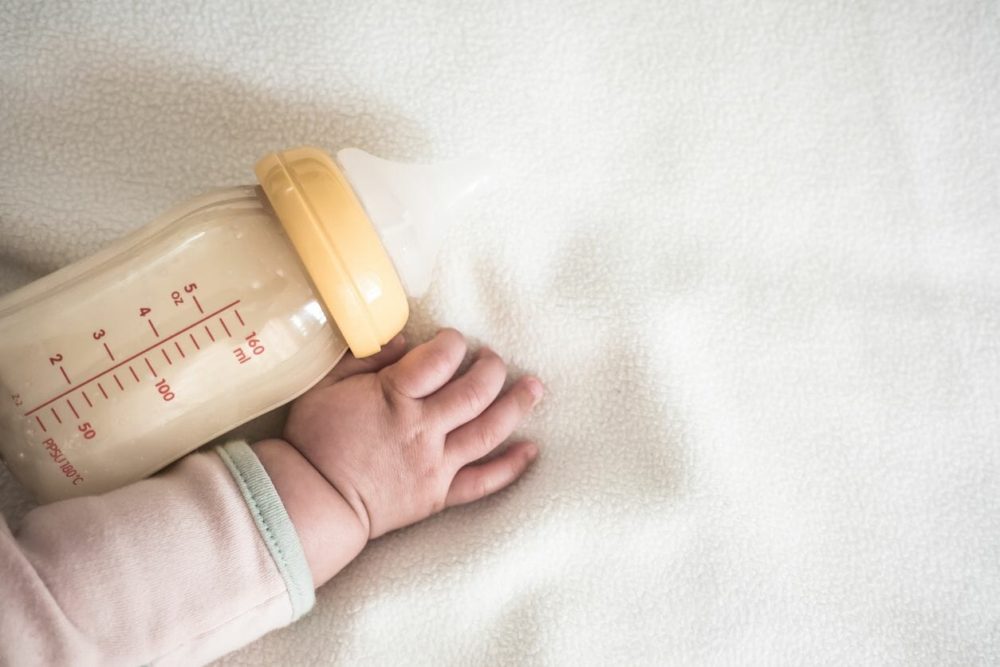“It may not sound groundbreaking, but hear us out: Two women may have made breastmilk this week. One cell biologist. One food scientist. We are those women.”
So begins a Medium post to be published later this Thursday by Michelle Egger and Leila Strickland — two founders of BIOMILQ, a biotech company seeking to optimise a human’s milk by culturing it in a bioreactor rather than a breast. “The results from our proof-of-concept experiments are in,” the founders will write: “We can confirm that our samples contain both casein and lactose, the predominant protein, and sugar components found in breastmilk!”
Breastmilk contains thousands of unique molecules blended in perfect proportions to nourish a human through crucial stages of development, the pair go on to explain: “To achieve this ideal blend, we believe human mammary cells are best equipped to create human milk; we’re all here because these powerhouse cells have been producing milk for millions of years. We are the first company to produce vital components of milk together within the same system using a process that is sterile from start to finish and free of all contamination. Most importantly, this innovation allows us to create the full constellation of complex components in perfect proportion.”
The question of why is it a good idea to outsource a process that has already been done effectively for tens of thousands of years is of course worth asking, as breastfeeding is one of the most effective ways to ensure healthy development in children. But the founders both rebut this by pointing out that exclusive breastfeeding is “unrealistic for most and impossible for many — in fact, 84% of moms transition to dairy-based infant formula before the recommended six month exclusivity period. Whether it’s low milk production, incompatible workplaces, or the ongoing stigma around breastfeeding in public, families feed infant formula out of necessity rather than preference. Parents and caregivers are left with suboptimal choices, and they want an option that doesn’t force a trade-off between babies’ nutrition and mothers’ wellbeing.”
This sort of thinking is similar to that of Singapore’s TurtleTree Labs, a Singapore-based biotech startup that has invited AFN to taste a glass of its lab-grown mother’s milk this spring (and which has one project lined up with the Smithsonian Institute to cultivate snow leopard milk for orphaned cubs.) The main, present obstacle for sweeping visions like those of Biomilq and TurtleTree is a twin pricing and scaling difficulty. TurtleTree shares these challenges with other cultivated dairy companies like Perfect Day, whose ice cream this reporter first tasted back in November in Singapore.
Perfect Day’s ice cream is made from inserting certain genes vital to cow milk into specific microflora and then fermenting these in a bioreactor, while Biomilq and TurtleTree extract human cells, and grow them into a mammary gland structure, keeping them nourished and clean while carefully skimming off their milky produce.
In fairness, the tricky pursuit of price parity is not unique to cultivating dairy; it is holding back meat growers too. Notwithstanding remarkable cost improvements of late, with everything from steak to pork chops, it still costs too much — as AgFunder highlighted in its recent White Paper on alternative proteins. Other obstacles are government regulations and consumer wariness.
A loving father’s milk
The world of infant formula, however, will be marginally easier to hit price parity with incumbent conventional producers. The infant and baby formula industry offers higher price points than other dairy products like milk or cream; the TurtleTree team say they can compete here by offering increasingly comprehensive nutritional and environmental benefits, while Biomilq is looking to go down the line of personalisation. Even to the point where fathers can produce milk for their children.
“We could produce men’s milk as well,” offered Egger, who is Biomilq’s CEO and a former food scientist at General Mills. Egger added that her company’s technology could one day help anyone to “overcome their gender or physical limitations.”
Breast milk for adults
Neither, she added in a Facetime interview with AFN, would this produce be necessarily limited to infants. “This could have a really profound effect on immune-comprised adults,” she said, citing hefty nutritional benefits of a diet of breast milk and warning that there are already instances of “black market breast milk.”
Her co-founder and CSO Strickland agreed, noting that the truly hard part with all of the technical side was not who could drink it or whether milk could be made from cells outside of a breast — lactation in petri dishes has been found to be a scientific possibility long ago on a microscopic scale, and Strickland herself has been doing this since the mid-2000s as a cellular scientist at Stamford’s medical school. It is much more tricky, she said, when thinking about creating any kind of scale, to successfully avoid contamination or damaging disruption while skimming off the milk. That is a bioreactor design that Strickland believes her team has got right.
Then again, “We’re not planning to have a milk and tell,” added Eggers, declining to specify how much milk their patent-pending bioreactor technology was capable of creating, except that the amounts were “more than microscopic.”





